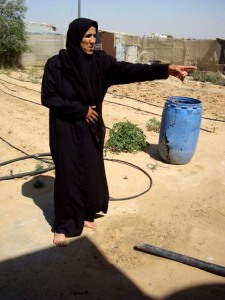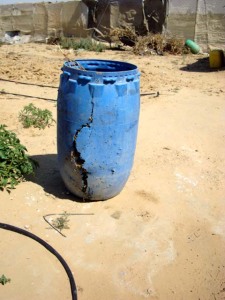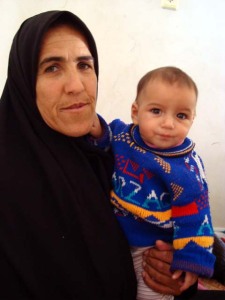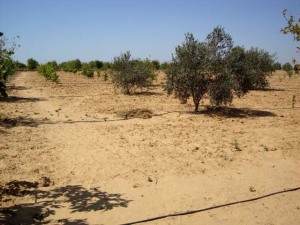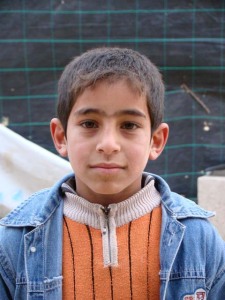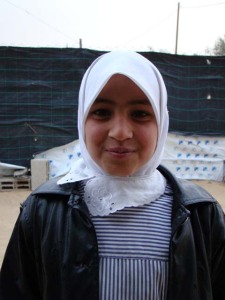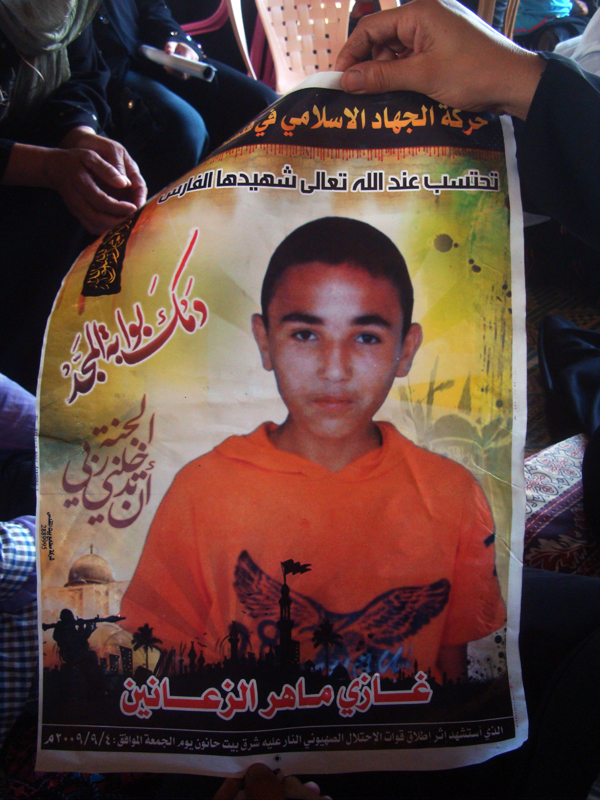Naama Barbakh stands in the yard beside her farmhouse in southern Gaza’s As Shoka district, east of Rafah. She gestures to the ground and the surrounding area, pointing out where the dead and dying bodies of her husband and three of her sons lay after an unmanned drone missile strike on the morning of January 4th. On January 3rd, the Israeli land invasion had begun, with tanks and troops invading Gaza and occupying areas to the east of Rafah.
Barbakh, a mother of eight children, three martyred in the attack, explains what happened that morning.
“It was around 9 am. My daughter and I were preparing bread dough inside the house. My husband Abed (43) and three of my sons, Mahdi (20), Mohammed (19), and Yusef (15), were outside collecting and cutting firewood, as we had no cooking gas.”
She points to the bread hut where she would have used the cut firewood to heat the bread oven. The missile strike came before this was possible.
“I heard the explosion of the missile and ran outside to see where it had hit. Out front I didn’t see anything, so I ran to the back of the house. I didn’t know where the missile had landed, or that my sons and husband had been hit. I found their bodies covered in blood, along with the body of my nephew Mousa (17). Only Mousa was still alive, looking up at me. He tried to stand, then fell back down.”
The ruptured plastic container, pock-marked wall, and faint stain on the earth where 4 bodies lay indicate the area where the missile exploded.
“I phoned for an ambulance but was told it was too dangerous and they couldn’t reach the area. I ran out to the street screaming for help. By the time my neighbours came Mousa had also died.
Ahmed, one of her surviving sons, survived the attack although he was also ouside with his brothers and father.
“He was further away from where the missile landed. It covered him in dust, so initially he couldn’t see what had happened.”
When he’d wiped his eyes clear and saw his fathers and brothers strewn dead and dying, he became agitated. “He was hitting himself over and over when I saw him. Now he is ill, he doesn’t eat, can’t concentrate.”
Abed Hassan Barbakh, Naama martyred husband, was the family’s only source of income, working as a paid farm-labourer when there was work to be had. For Naama and her remaining five children -including children ages 10 and 11 and a 7 month old infant -there is little to hope for and much to lament. Without a bread-winner their situation has gone from poor to desperate.
*an otherwise idyllic and productive setting
The following portraits by Fida Qishta:
*Ali, now 7 months old
*Sharef, 10 years old.
*Amena, 11 years old.
*martyred father, sons, and nephew.
